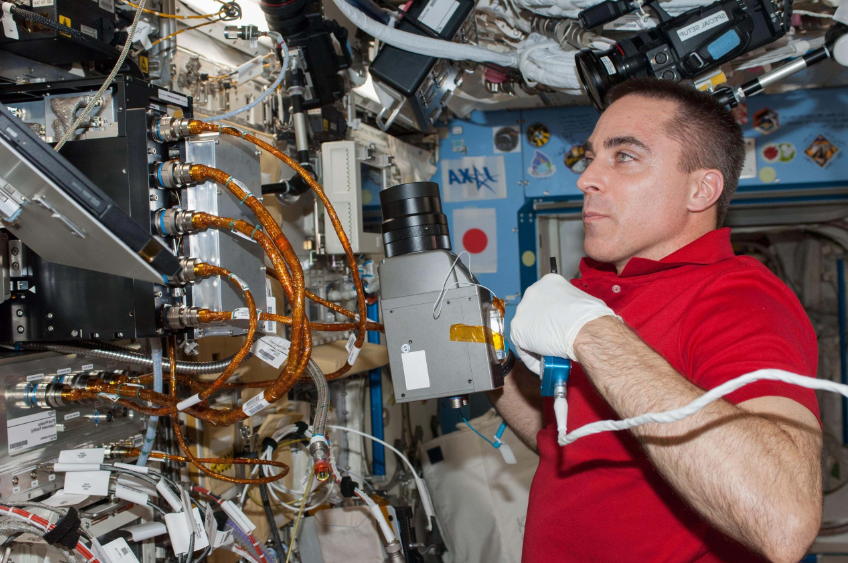The NASA GRC International Space Station (ISS) Fluids and Combustion Facility (FCF) has reached a milestone with 50 flights to ISS in support of its science mission.
The FCF is a set of two International Space Station (ISS) research facilities designed to support physical and biological experiments in support of technology development and validation in space. The FCF consists of two modular, reconfigurable racks called the Combustion Integration Rack (CIR) and the Fluids Integration Rack (FIR).
The CIR and FIR were developed at NASA’s Glenn Research Center (GRC) in Cleveland, Ohio, under a prime contract with ZIN Technologies. The CIR was launched to the ISS on the Space Shuttle STS-126 in 2008 and the FIR was launched on STS-128 in 2009. Both racks are operated remotely from the Glenn ISS Payload Operations Center (GIPOC) at GRC.
The sustaining engineering and operations team is under a prime contract with ZIN Technologies. ZIN has supported 977 top level assemblies to ISS with a total mass of FCF hardware to date over 2284 Kg. The CIR was the heaviest rack launched to ISS at 771 Kg. The CIR platform made it possible for the discovery of “Cool Flames”. The CIR was originally envisioned during the Skylab era and its predecessor Combustion Module-1 (CM-1) was aboard the last flight of the Space Shuttle Columbia.
The FIR includes the Light Microscopy Module (LMM) that is a modified commercial, highly flexible, state-of-the-art light imaging microscope facility that provides researchers with powerful diagnostic hardware and software onboard the International Space Station (ISS).
The LMM enables novel research of microscopic phenomena in microgravity, with the capability of remotely acquiring and downloading digital images and videos across many levels of magnification. The way that matter is organized and moves on the microscopic level profoundly affects the macroscopic world and an understanding of such processes helps scientists and engineers build more efficient materials and machines both for both the earth and space environments. ZIN Technologies was acquired by Voyager Space in March 2023.
